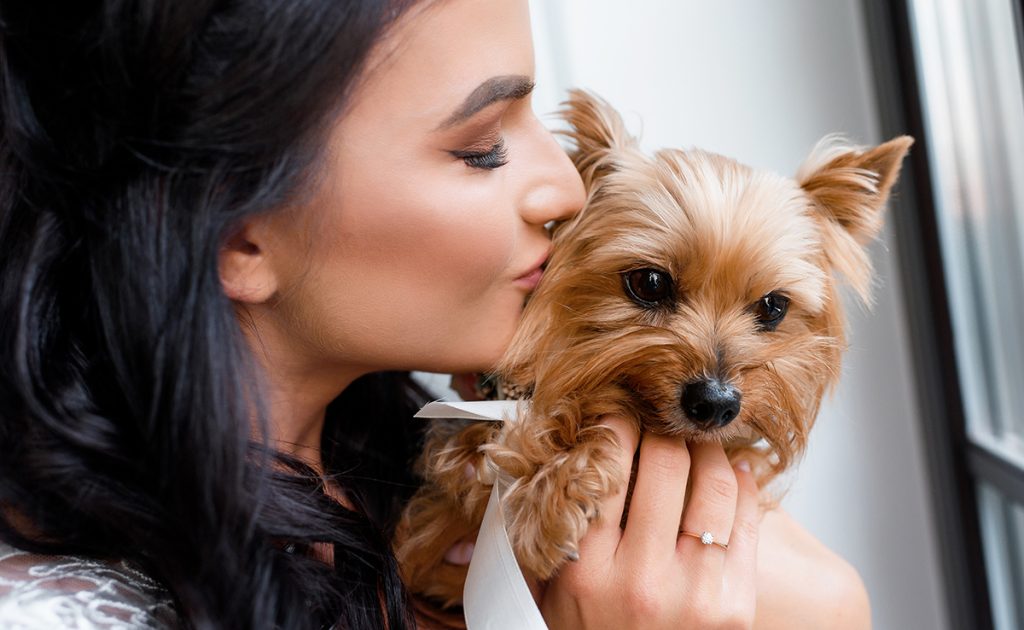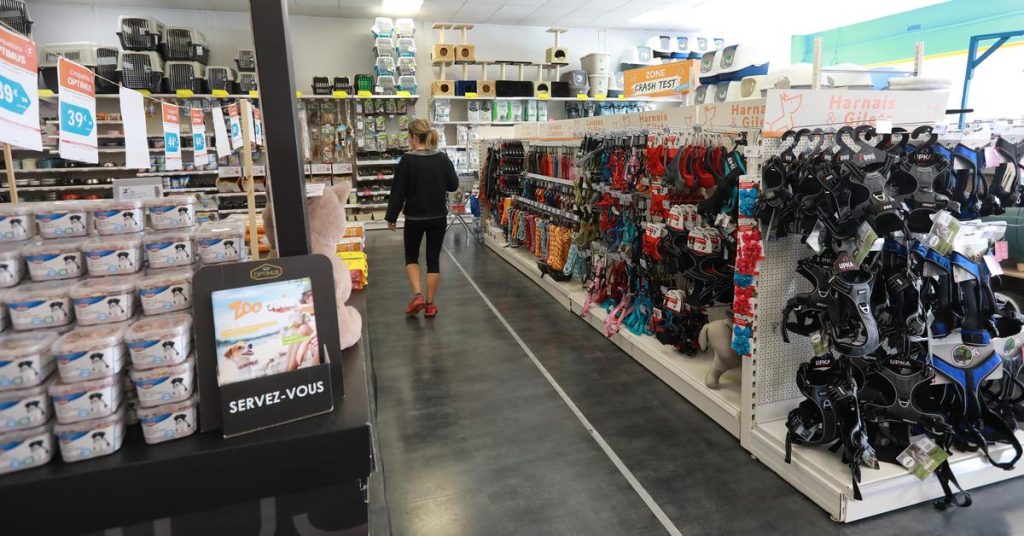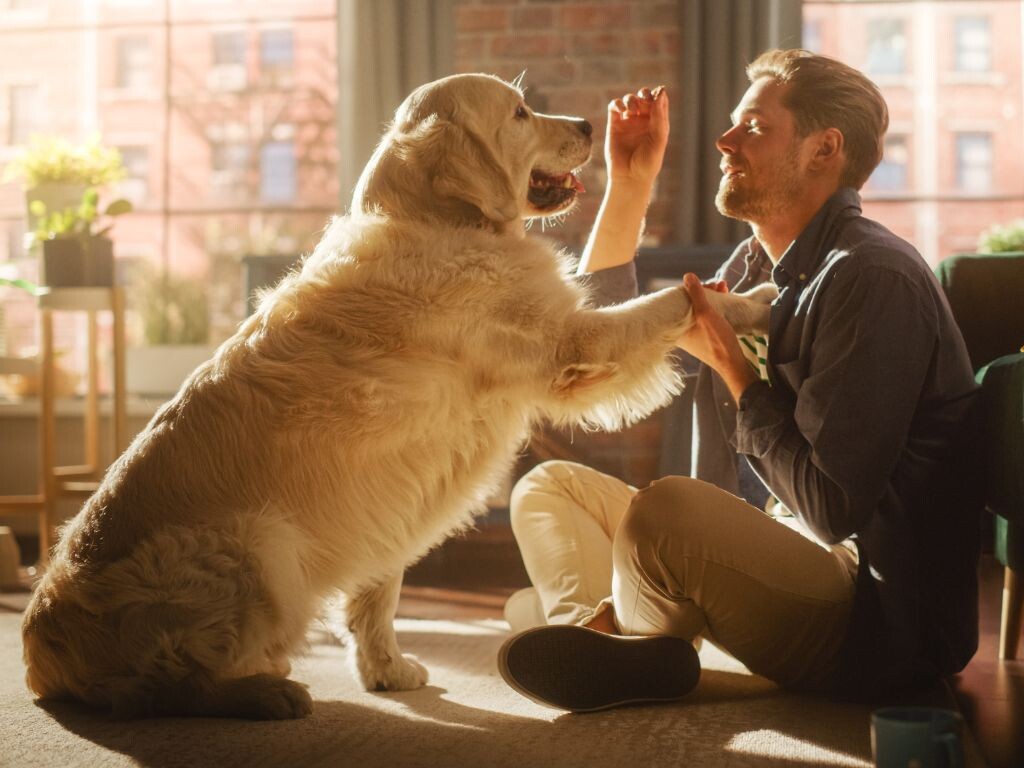
In France, almost one in two households owns a pet and their market is very lucrative. Beyond food and everyday objectsthere is an entire industry of cosmetic care dedicated to pets. Creams, shampoos… and even perfumes. These are used to camouflage bad odors or for vanity, but are they really useful and are they safe? Let’s talk about it in this article.
Perfumes for dogs: what are they?
THE perfumes or deodorants for dogs logically aim to ensure that your companion emits a pleasant scent. They can also be used to perfume everyday accessories: basket, blanket, niches, etc. There is something for everyone: floral, fruity, sweet, gourmet or fresh scents.
These products are normally made from ingredients adapted to the skin and coats of our animals, just like other cosmetic products dedicated to them. Remember that we should never use products made for humans on our animals: their ingredients are not suitable for their skin and their scents are often much stronger.
Problems that these products can cause
Our dogs have a much more developed sense of smell than humans: it is in fact their most impressive sense, which plays many roles on a daily basis.
- It allows you to memorize the environment (places, people, objects, etc.).
- It allows them to communicate with their peers, thanks to the production of pheromones. These give indications concerning the emotions felt by the animal, but are also useful for reproduction and hierarchy.
This explains, for example, that a dog is capable of smelling a medicine that is ingeniously hidden in its food. But if this sense of smell is so developed, the perception of scents is necessarily much stronger in the animal. However, the principle of this type of perfume is precisely to cover the natural odors of the dog and its environment. This can therefore create discomfort at best, stress at worst, loss of bearings and communication problems that are harmful to the animal’s well-being.
Perfuming your dog so that it smells better can also create the completely opposite effect: the animal may feel the need to get rid of this too strong and unfamiliar smell, for example by rolling in other natural odorous substances, such as mud, a stagnant puddle of water or even feces. We therefore obtain the completely opposite effect to that hoped for and this creates a real vicious circle.
Then, depending on the selected ingredients, which are not always 100% natural, perfume for dogs can also pose various intolerance problems. In certain animals, these products can cause allergies, skin problems (irritation, itching) or even respiratory problems (sneezing).
In summary, Perfuming your dog is never good for him and will not help him feel better about his paws. Rather, these products are designed to satisfy humans. If you still want to try this type of perfume, choose alcohol-free, water-based versions and use them occasionally. Choose products that clearly indicate their composition.
What to do if your dog doesn’t smell good?
If your dog’s smell is truly overbearing, it’s important to take action to find the cause, not just to mask the consequences.
If your pet stinks occasionally, this can follow a walk. It may have been rainy and caused the famous wet dog smell, or your pet may have spontaneously wanted to roll in substances considered smelly by humans. In this case, effective drying and a good bath will simply eliminate bad odors.
If your pet’s bad odor is long-lasting and persistentit can have several origins:
- a lack of hygiene;
- a health problem, particularly dermatological (inflammation, infected wound, seborrhea, fungus, parasitism, bacteria, etc.);
- a health problem with the anal glands;
- an unsuitable and/or poor quality diet, creating deficiencies, allergies or intestinal disorders.
Do not hesitate to contact your veterinarian if your dog’s smell is really strong and difficult to bear. A healthy dog does not naturally smell bad.
Likewise, if your dog does not smell good in a particular part of the body, it is possible that this is due to a specific health concern (presence of tart in the case of bad breath, ear infection, etc.).
let’s remember that some dog breeds may be more predisposed to strong odors, due to their physical characteristics. This is the case for dogs with many folds of skin, such as Pugs or Shar-Pei. These folds create warm and humid conditions favorable to the development of bacteria and fungi, which can cause bad odors. Dogs that drool a lot (Saint Bernard, etc.) or those with hanging ears (Basset Hound, Beagle, etc.) can also smell bad if adequate care is not applied.
Natural alternatives to eliminate bad odors
It exists different solutions to make your dog smell better.
- Give him a bath. Good hygiene remains the best way to combat bad odors in dogs. Bathing or grooming helps eliminate impurities and excess sebum present in the coat. But don’t bathe too regularly, as this risks damaging and unbalancing the skin, which could cause bad odors. It’s all about balance! A monthly bath is usually sufficient. Use a specific animal shampoo, adapted to its pH and the fineness of its skin (baby shampoos are not suitable either). If you don’t have the opportunity to bathe your dog immediately, there are dry shampoos that save a little time by absorbing impurities from the hair.
- Brush your pet regularly. Here again, brushing will help remove any dirt and dead hairs, which can cause dermatological problems generating bad odors. If your dog has been accustomed to it from a very young age, brushing can be a very appreciated ritual, which helps to consolidate your relationship.
- Monitor your dog’s eyes, ears and teeth regularly. These areas can in fact be responsible for bad odors if they remain dirty and become infected.
- Clean textiles in contact with your pet often in the washing machine. and which can keep bad odors: blankets, baskets, rugs, soft toys, cushions, etc. For everyday objects, be sure to choose items that are easily washable and/or removable.
- Use food-safe baking soda. If your dog has a too strong smell from time to time, you can take advantage of a petting session to sprinkle his fur with a little baking soda, which has absorbent and anti-odor properties. Massage, leave for around fifteen minutes, then brush off the excess. It is a safe and non-toxic product, which you can also use on animal textiles. It serves as a dry shampoo here, but also proves to be a good anti-parasitic agent.
- If you really want to use a scented product, choose plant hydrosols or floral waters. They are obtained by distillation of plants using water vapor and are therefore quite mild (since they are less rich in active substances). However, you can still dilute them in water to make them less concentrated, before spraying on your dog’s accessories or hair. As a reminder, even if they are 100% natural, essential oils must be used with the greatest caution in dogs. We do not recommend their regular use for purely olfactory purposes.




